If you’d like to become an investor or learn more about stock analysis, then you need to know the best books on fundamental analysis of stocks. These books will be a great source of information about the stock market for beginners, as well as provide some insight into how the big money operates on Wall Street, since many books are written by well-known investors.
In fact, reading in general is important if you want to succeed in any career. If you open one of those “click-baity” articles that pop-up on Facebook with titles like “10 things that all millionaires have in common”, you will see that among the things listed there is “reading”. And it’s true; Bill Gates reportedly reads around 50 books a year, while Mark Zuckerberg challenged himself in 2015 to read a new book every two weeks. Billionaire Warren Buffett is also known to read a lot, and from time to time he mentions some of the books that impressed him (as can be seen in our list of 11 Investing Books Billionaire Warren Buffett Wants You to Read). So, unless you want to be the Donald Trump-kind of rich, you will have to have a close relationship with books, otherwise you can stick to watching “Fox and Friends” and listening to Alex Jones.
When it comes to investing in the stock market, there are plenty of resources that can guide you and provide you with information that you will need to build a strategy, so you don’t necessarily need an expensive degree, just a positive attitude and commitment. Reading books on stock trading won’t make you a stock market genius, but it can provide a decent source of income and will allow you to be your own boss, although it will require a lot of effort and much more time than a regular 9-to-5 job, as well as a lot of stress as your own money will be on the line.

Billion Photos/Shutterstock.com
Now, if you have some idea about how stock analysis works, you probably know that there is fundamental analysis and technical analysis. Technical analysis allows you to identify good entry and exit points for buying and selling stocks and doesn’t necessarily require a lot of reading on a particular company or an understanding of how it operates. On the other hand, fundamental analysis is good for long-term investors, as it can help identify companies that could provide small, but steady returns over many years. Hedge funds and other large asset management firms usually use fundamental analysis, while for investors with less capital, a combination of both would be a better approach.
With this in mind, let’s take a closer look at our selection of the 15 best books on fundamental analysis of stocks. The books on the list are not just among the best in the fundamental analysis category, but many are considered to be the best books on investing in general and represent must-reads for everybody who wants to get in the field. The titles are sorted based on their ratings on Goodreads, although some of them don’t have many reviews, so a lower rating doesn’t necessarily do them justice. And now, let’s see the list of best books on fundamental analysis of stocks.
15. How To Make Money in Stocks, by William J. O’Neil
Goodreads score: 3.9
How to Make Money in Stocks is a trilogy of books that can guide beginner investors through the pitfalls of the stock market and help them develop a strategy that maximizes returns and minimizes risk. In the book, O’Neil explains the CAN SLIM strategy that he developed and which helped him become a successful investor and provides the opinions of other investors using the strategy, as well as tips to employing it in real-time situations.
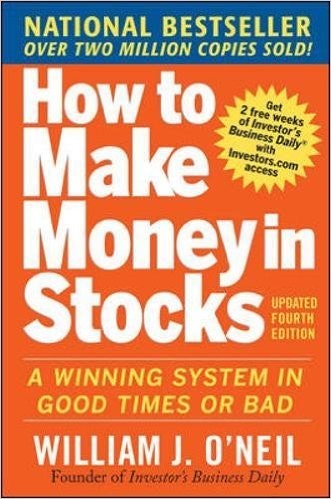
Photo credit: Amazon
14. Stocks For The Long Run, by Jeremy Siegel
Goodreads score: 3.93
First released in 1994, Stocks For The Long Run that ranks 14th in our list of best books on fundamental analysis of stocks has been republished four times since then. In the book, Jeremy Siegel, a professor of finance at the Wharton School, provides a long-term analysis of the financial markets. The book was named one of the best investment books and a must-read for investors by several publications and is considered by some to be the “buy and hold Bible” due to Siegel’s arguments in favor of long-term investing.
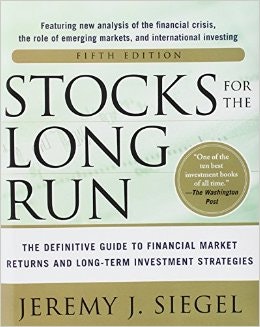
Photo credit: Amazon
13. Portfolio Selection: Efficient Diversification of Investments, by Harry Markowitz
Goodreads score: 3.94
Harry Markowitz is the father of the Modern Portfolio Theory, which is the mathematical framework for building a basket of investments that maximize returns for a given level of risk. The theory is used by many robo-advisors that can automatically build and adjust portfolios for investors, which are widely used in many financial management apps. The theory was published in a paper titled “Portfolio Selection” published in 1952, for which Markowitz won the Nobel prize in economics. In “Portfolio Selection: Efficient Diversification of Investments”, Markowitz provides some mathematical frameworka using modern methods of analysis and computation that can help an investor build a portfolio. What is also worth mentioning is that the book does not require the reader to have complex mathematical skills.
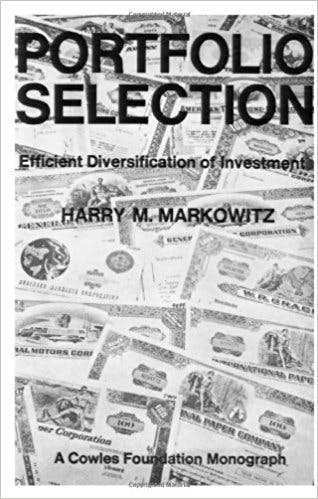
Photo credit: Amazon
12. Beating The Street, by Peter Lynch (with John Rothchild)
Goodreads score: 3.96
Peter Lynch is one of the most successful investors on Wall Street, having averaged annual returns of over 29% while managing the Magellan Fund at Fidelity Investments between 1977 and 1990. That success has earned him the title of “legend” and his books on investing are among the best-selling investing tomes. Beating the Street is Lynch’s second book after One Up on Wall Street, which we will discuss on another page, and provides some details about his strategy. In addition, the book is written in a non-academical way and has a conversational style, which should be very helpful for beginners.
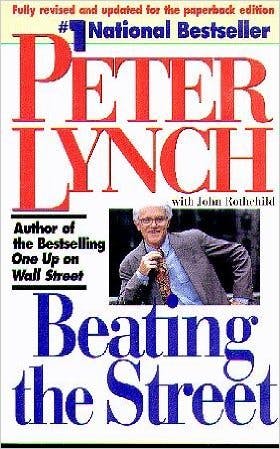
Photo credit: Amazon
11. A Random Walk Down Wall Street, by Burton G. Malkiel
Goodreads score: 4.04
A Random Walk Down Wall Street is another classic that can be a great starter for new investors. The book discusses the theory of the so-called “random walk hypothesis”, which argues that stock market prices evolve according to a random process and cannot be predicted. In this way, the author states that a passive strategy will be more successful at generating returns compared to techniques involving carefully selecting stocks using fundamental, technical and other approaches.
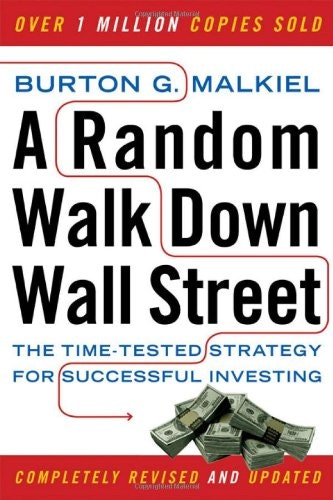
Photo credit: Amazon
10. Common Stocks and Uncommon Profits, by Philip Fisher
Goodreads score: 4.08
Philip Fisher was one of the greatest investors of all time and his book “Common Stocks and Uncommon Profits” is a summary of his philosophy, which is still used today. The book was first published in 1958 and is still in print; it was also the first investment book to appear on The York Times’ bestseller list. Fisher’s son, Ken Fisher has also become a very successful investor, with a net worth of $3.60 billion.
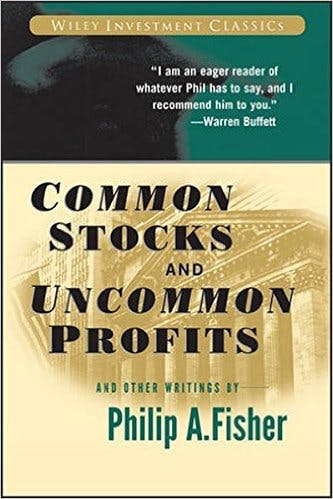
Photo credit: Amazon
9. One Up On Wall Street, by Peter Lynch (with John Rothchild)
Goodreads score: 4.1
One Up is the first book written by Peter Lynch and was co-authored by John Rothchild. The book provides readers with tips on picking out stocks by analyzing companies and focusing on only the most important figures. The book has become a bestseller and is another classic on long-term investing.
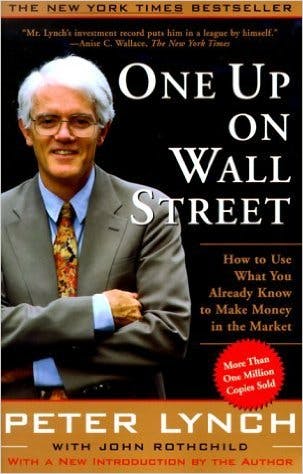
Photo credit: Amazon
8. Competitive Strategy, by Michael Porter
Goodreads score: 4.13
In Competitive Strategy, the next book on our list of best books on fundamental analysis of stocks, Michael Porter examines how companies compete within industries and what strategies they apply in order to stay ahead of their rivals. Even though the book is not really about investing, but more on business, it can still be helpful for investors in identifying the most profitable companies.
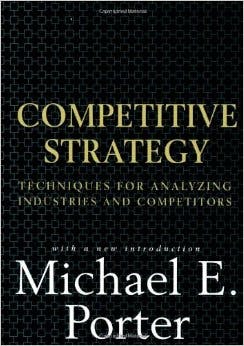
Photo credit: Amazon
7. Stock Market Wizards – Interviews with America’s Top Stock Pickers, by Jack D. Schweiger
Goodreads score: 4.20
As can be understood from the title, this book represents a collection of interviews with the most successful investors. Even though these investors generally don’t provide a lot of insight and don’t like to talk in too much detail about their strategies, it can still be a useful read for those that want to get in the mindset of the best stock pickers, which why this book is one of the best books on fundamental analysis of stocks.
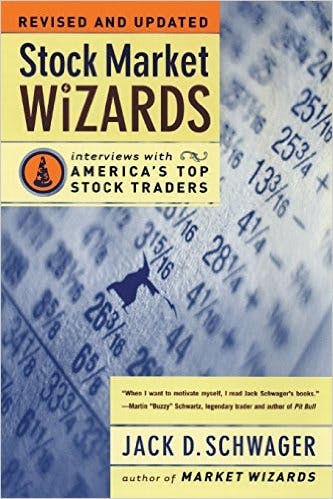
Photo credit: Amazon
6. The Intelligent Investor, by Benjamin Graham and David Dodd
Goodreads score: 4.26
The Intelligent Investor is a book that must be featured on every investors’ reading list, and was surely going to rank highly on the list of the 15 best books on fundamental analysis of stocks. Benjamin Graham is known as the father of value investing and this book provides an analysis of his approach, which is also used by several successful investors, including Warren Buffett, who was Graham’s student at Columbia Business School. The Intelligent Investor is Buffett’s Bible and represented the foundation of his investment strategy. “Picking up that book was one of the luckiest moments in my life,” Buffett said in a shareholder letter.
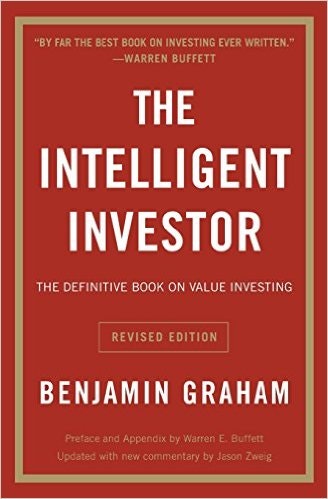
Photo credit: Amazon
5. The Most Important Thing: Uncommon Sense for the Thoughtful Investor, by Howard Marks
Goodreads score: 4.28
Howard Marks is the founder of Oaktree Capital Management and one of the richest people in the U.S. He is well-known for his insightful views of the market and his memos to clients provide some very useful commentary on the state of the stock market and the economy in general. This book represents a collection of these memos that Marks uses as examples to illustrate his philosophies. Warren Buffett said: “When I see memos from Howard Marks in my mail, they’re the first thing I open and read. I always learn something, and that goes double for his book.” Seth Klarman, another investor said: “Regular recipients of Howard Marks’s investment memos eagerly await their arrival for the essential truths and unique insights they contain. Now the wisdom and experience of this great investor are available to all. The Most Important Thing, Marks’s insightful investment philosophy and time-tested approach, is a must read for every investor.”
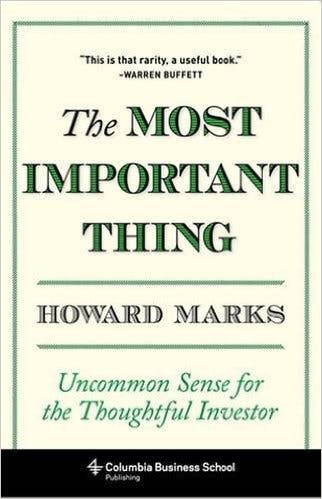
Photo credit: Amazon
4. Security Analysis, by Benjamin Graham and David Dodd
Goodreads score: 4.30
Another classic investing book by Ben Graham, Security Analysis that ranks 4th in our list of best books on fundamental analysis of stocks provided the foundation for value investing and was written based on notes from Graham’s lectures at Columbia taken by David Dodd. The book has been in print for over 60 years, an absolute record for any investment text. The focus of the book is that one of the main pillars of successful investing is a careful analysis of a company’s balance sheet. Warren Buffett said that Security Analysis provided him with “a road map for investing”.
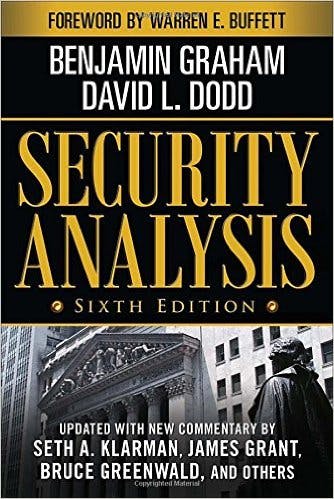
Photo credit: Amazon
3. The Essays Of Warren Buffett: Lessons For Corporate America, by Warren Buffett and Lawrence Cunningham
Goodreads score: 4.35
Warren Buffett is probably the most followed investor and his annual letters to shareholders are eagerly awaited by the public as a rare occasion to get a glimpse into his philosophy. This book, authored by Lawrence Cunningham, is a collection of Buffett’s letters that contain some of the most important pearls of his investment wisdom.
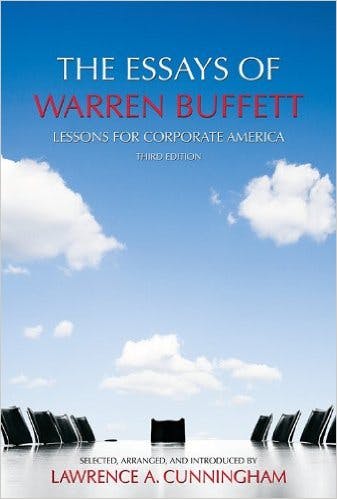
Photo credit: Amazon
2. Margin of Safety, by Seth Klarman
Goodreads score: 4.36
We are continuing our list of best books on fundamental analysis of stocks with Margin of Safety that is another book that provides an understanding of value investing and explains why it is the best strategy to follow. Seth Klarman, the manager of Baupost Group, provides tips on how to become a successful investor. However, the drawback is that the book has not been published since 1991, so a copy costs around $950 on Amazon.
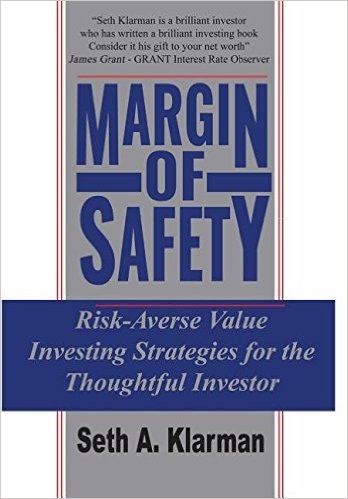
Photo credit: Amazon
1. Portfolio Theory and Capital Markets, by William F. Sharpe
Goodreads score: 4.8
William F. Sharpe is the author of the Capital Asset Pricing Model, which is widely used by investors across the world, and which is one of the most important models in modern investment theory. He also developed the Sharpe ratio used for risk-adjusted investing and won the 1990 Nobel Prize in Economics for his work on the theory of financial economics. Portfolio Theory and Capital Markets ranks first on our list of best books on fundamental analysis of stocks, and it is a timeless classic on investment that helps readers navigate through the financial markets and provides some rules for identifying good investments.
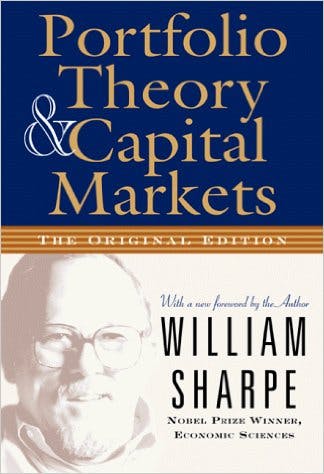
Photo credit: Amazon
With this we conclude the list of the 15 best books on fundamental analysis of stocks. These books should be fairly easy to read and provide investors with a lot of information and insight that can help them understand how the financial markets work and how to analyze companies while making portfolio picks.




